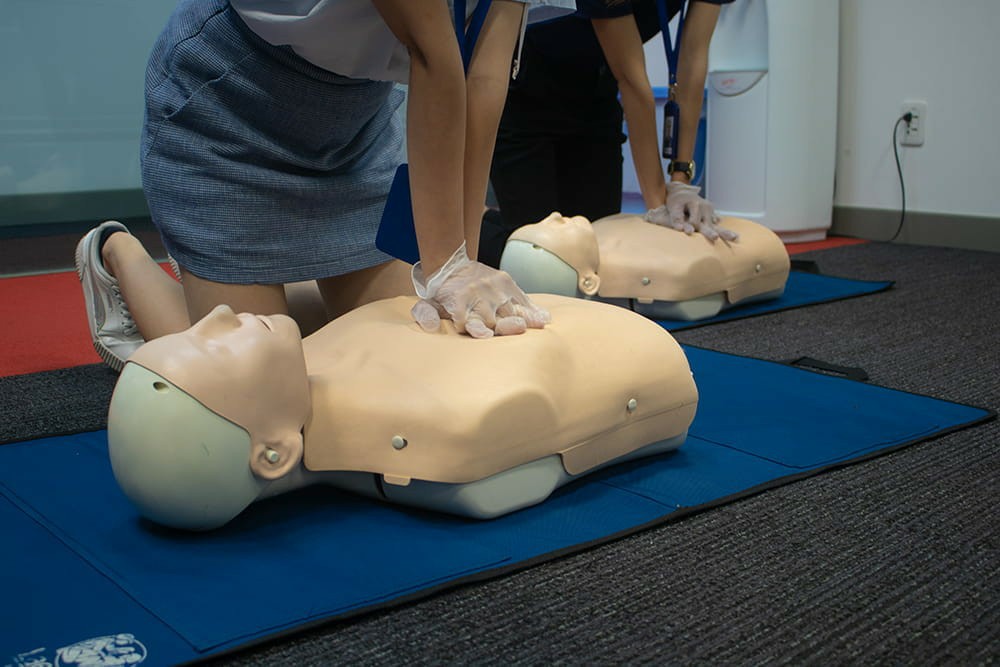Elevate Workplace Safety: The Imperative of First Aid & CPR Training Across Ireland’s Major Cities
In the fast-paced world of business, especially in vibrant cities like Dublin, Cork, Galway, Limerick, Waterford, and Belfast, ensuring the safety and well-being of employees is paramount. One crucial way to achieve this is through comprehensive First Aid and CPR training. This essential training not only equips individuals with vital life-saving skills but also fosters a culture of safety and preparedness within organizations.
The Importance of First Aid & CPR Training in the Workplace
Workplace health and safety have become increasingly significant in recent years, with regulations emphasizing the need for trained staff in First Aid and CPR. Whether in an office, a factory, or on construction sites, the ability to respond promptly to medical emergencies is invaluable. Here's why:
- Immediate Response: In emergencies like cardiac arrest, stroke, or workplace injuries, every second counts. Well-trained employees can administer first aid and CPR, increasing the chances of survival significantly.
- Reduced Workplace Injuries: Regular training helps identify potential hazards and encourages safer work practices, leading to a notable reduction in workplace accidents.
- Compliance with Regulations: Ireland’s workplace safety laws require employers to have appropriate First Aid training. Failing to comply can result in hefty fines and legal consequences.
Top Benefits of First Aid Certification for Employers and Employees
Investing in First Aid certification brings several advantages:
- Peace of Mind: Employees feel safer knowing their colleagues are trained to handle emergencies.
- Enhanced Team Cohesion: Training fosters teamwork and improves communication among employees during high-stress scenarios.
- Cost-Effective: Reducing the number of workplace accidents and injuries leads to lower insurance premiums and reduces absenteeism.
Essential CPR Techniques for Emergency Situations
Understanding the fundamental techniques of CPR is crucial. Key skills include:
- Chest Compressions: Knowing the correct compression rate and depth can be the difference between life and death.
- Rescue Breaths: Learning how to give effective rescue breaths is vital, particularly for children and infants.
- Using an AED: Familiarity with Automated External Defibrillators (AEDs) boosts the chances of survival significantly during a cardiac event.
Ensuring Compliance with Irish Workplace Health & Safety Regulations
First Aid training is not just beneficial; it is a legal requirement in many cases. Compliance is key for businesses to avoid penalties. The Health and Safety Authority (HSA) emphasizes that:
- Employers must provide adequate supervision and training in response to workplace injuries.
- Risk assessments must be carried out to determine First Aid needs based on workforce size and operations.
Immediate Emergency Response Procedures Every Employee Should Know
All employees should be aware of these basic emergency response procedures:
- How to assess a scene for safety before acting.
- Knowing emergency contact numbers and the location of first aid kits.
- Specific workplace protocols for reporting incidents.
Advantages of Online Versus In-Person First Aid Training Courses
Many organizations are now opting for online First Aid courses that offer flexibility while still maintaining high-quality training standards. Consider the following:
- Flexibility: Employees can learn at their own pace at a time that suits them, making training more accessible.
- Cost-Effectiveness: Online training often comes at a lower cost than traditional in-person courses.
- Comprehensive Resources: Access to a wealth of materials and videos can enhance understanding compared to lecture-based formats.
Strategies for Reducing Workplace Accidents Through First Aid Training
Effective First Aid training plays a vital role in accident prevention:
- Regular training sessions reinforce skills and keep safety practices at the forefront of employees' minds.
- Conducting regular safety audits with trained staff helps identify and mitigate hazards.
Conclusion & Call to Action
Enhancing your workplace safety measures with comprehensive First Aid and CPR training is not just a legal obligation; it’s a moral imperative. Proper training empowers employees to act effectively in emergencies, reduces workplace injuries, and fosters a culture of safety.
Don’t wait for an emergency—be proactive! Enroll your team today in accredited First Aid & CPR training courses to secure a safer workplace environment.
If you have any questions or need more information about our courses, feel free to reach out to us at [email protected].



 349,500 Offered Certificates
349,500 Offered Certificates
 24/7 Online Training
24/7 Online Training
 Money Back Guarantee
Money Back Guarantee
 Fully Accredited Courses
Fully Accredited Courses
